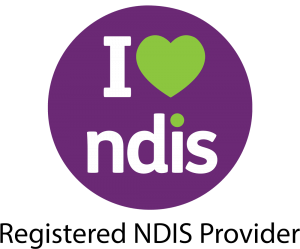When you’re looking into NDIS providers, you might hear about ‘registered’ and ‘unregistered’ ones. It sounds straightforward, but there’s more to it.
Knowing the differences is important, especially if you have a disability, are a carer, or a family member. Why? Because it will affect your choices and the support you receive.
Understanding these two types of NDIS providers can feel overwhelming. You’re looking for the best support, but with so many options, where do you start?
We’re here to break it down for you. Think of it as a clear, no-nonsense guide to help you make informed decisions.
Choosing between registered and unregistered NDIS providers involves more than just knowing their titles. It’s about getting to the heart of what each type offers.
How do they match up with your NDIS plan? What about the quality and safety of the services they provide?
These are aspects too important to ignore.
Our goal is to clear up any confusion and tell you what you need to know in a way that’s easy to understand. By the end of this article, you’ll hopefully be able to make a choice that truly resonates with your unique needs and provides the support you or your loved ones deserve.
So, what are registered NDIS providers?
When we talk about registered NDIS providers, we’re referring to services or organisations that have the NDIS stamp of approval. It’s a bit like getting a seal of quality.
But it’s not handed out easily. These providers have to jump through quite a few hoops to earn it.

Firstly, they need to tick all the boxes on a pretty comprehensive checklist set by the NDIS.
What’s on this checklist, you ask? Here’s a glimpse:
- Relevant professional qualifications
- Necessary certifications for their service area
- Ongoing training to stay up-to-date
- Compliance with national and state-specific regulations
- Evidence of quality management systems in place
But it’s not all about qualifications.
These providers also need to meet high safety standards and show a deep commitment to delivering excellent services. It’s like a promise to bring their best to the table, every time.
Why all these requirements? It’s simple. This careful process makes sure that these providers have the skills and tools to meet the different and unique needs of people with disabilities.
It’s all designed so you can get the support that is just right for you.
How does choosing a registered provider benefit you?
When you pick a registered provider, you’re entering a circle of trust.
These providers are not just one-and-done with their qualifications. Every year, like clockwork, they go through reviews and assessments. It’s their way of making sure they’re always up to scratch.
This yearly evaluation is a big deal.
It keeps the services you rely on fresh and in line with the latest NDIS standards. Think of it as a regular health check for the services you use, always striving for better.
And there’s more.
Registered providers are right in the thick of things when it comes to NDIS updates. Changes in policies, funding, you name it, they’re on it. This means they’re quick to adapt to anything new that could benefit you.
Choosing a registered provider isn’t just about getting a good service. It’s about having someone who’s well-informed, always growing, and fully committed to your care.
How about unregistered NDIS providers, what do they mean?
Choosing an unregistered NDIS provider is like taking a more independent route.
These providers haven’t gone through the NDIS’s yearly evaluation process. But that doesn’t automatically rule them out as a great option.
Since they’re not in the regular NDIS loop, unregistered providers aren’t automatically updated on changes in NDIS policies or funding. This means they might approach things a bit differently. It’s like having a friend who’s a bit of an outsider but brings a unique perspective to the table.
The key here is doing your due diligence.
Without the NDIS’s regular assessments, it’s up to you to check their qualifications and how they maintain their service quality. It’s a bit more legwork, but it can lead to finding a hidden gem that’s perfect for your needs.
Going for an unregistered provider can offer more flexibility, possibly even more customised approaches. It’s ideal for you if you don’t mind exploring off the beaten path and are comfortable making more informed decisions independently.
Just be sure you’re ready to do a bit of digging to make sure their standards align with what you’re looking for.
And how will unregistered providers affect my NDIS plan?
When you choose an unregistered NDIS provider, the way your plan works shifts a bit. It’s important to know what this means for you.

First off, the payment process is different.
With unregistered providers, you’ll pay them directly and then submit a claim to the NDIS for reimbursement. This means a bit more paperwork and managing the finances yourself, but it opens up more options in terms of who you can work with.
Then there’s the coordination of services. Since unregistered providers aren’t part of the NDIS system, it’s up to you to make sure their services match your NDIS goals.
Lastly, think about how these choices fit with your needs.
Unregistered providers can offer services that are unique or highly specialised. The key is to balance the extra steps involved with these benefits.
Registered vs unregistered NDIS providers — breaking down the differences
Getting your head around the differences between registered and unregistered NDIS providers is really important for making a smart choice. It’s not just about who has the most services to offer. It’s also about how well they stick to quality standards and rules. All these matter a lot because it affects the kind of support and experience you’ll get.
1. Compliance with NDIS standards
Registered NDIS providers are like students who constantly get graded. They have to stick to NDIS quality and safety rules and are regularly checked on this. This covers stuff like staff training and how safe their services are.
Unregistered providers? They don’t have these NDIS rules hanging over them. They might still be great at what they do, but there’s no NDIS stamp of approval to show for it.
2. Access to NDIS funding
Here’s where things get a bit tricky with funding.
If your NDIS plan is managed by NDIA or a plan manager, you’re looking at using only registered providers. But if you’re managing your own plan, you have the freedom to pick unregistered providers as well.
This is a big deal when you’re deciding who to go with, based on how your NDIS plan is set up.
3. Service range
What services are on offer can be quite different between these two.

Registered providers usually have a wider menu of services. They’re qualified to offer services that need more regulation, like complex healthcare or home improvements designed to make it more accessible.
Unregistered providers might focus on more specific or niche services. Think along the lines of helping around the house, transport services, or skill development.
4. Pricing structures
Let’s talk money.
Registered providers have to stick to the NDIS price guide and limits, so there’s a cap on what they can charge.
Unregistered providers, though, can set their own prices. This could mean better deals, but also a bit of unpredictability in costs. Something to keep in mind when planning your budget.
Pricing and fees between registered and unregistered NDIS providers can differ.
5. Quality and safety
Quality and safety checks are a big deal for registered providers.
They’re regularly tested to make sure they meet national standards. It’s all about keeping services safe and focused on you, the participant.
Unregistered providers might still offer top-quality services, but they don’t go through the same official safety checks.
6. Accountability and resolution process
If something goes wrong, the way you sort it out can vary.
Registered providers are part of the NDIS complaints system, giving you a formal way to raise issues. The NDIS Commission can step in if needed.

With unregistered providers, you’re more on your own, relying on general consumer protection laws to handle disputes. This is a big point to consider when you’re thinking about who’s accountable.
7. Flexibility and customisation
Finally, unregistered providers can sometimes offer more personalised or flexible services. They’re not tied to strict NDIS standards, so they might be able to adapt more to your needs or offer unique services.
But remember, this flexibility doesn’t come with the same oversight on quality and safety as with registered providers. You’ll need to balance the benefits of customised services against the potential risks of those that don’t go through regular evaluation checks.
Knowing what’s best for you
Deciding between registered and unregistered NDIS providers really boils down to what suits you best.

Have a think about what’s most important for your support.
Do you lean towards the reassurance that comes with a registered provider’s quality and safety? Or maybe the idea of more personalised services from an unregistered provider is more up your alley?
Your decision should take into account your specific NDIS plan, the kind of help you’re looking for, and how much you value having that formal stamp of quality. It’s about finding the right fit for your life and what you want to achieve.
At the end of the day, just remember that picking the right provider is a big part of making the most out of the NDIS, so take your time as you weigh your options.






